Why Antivirals Stop Working - And How to Keep Them Working
Antivirals can save lives. But they only work if you take them exactly as prescribed. Miss a dose? Skip a few? That’s often how resistance starts. It’s not magic. It’s biology. Viruses copy themselves billions of times a day. Every time they copy, there’s a chance of a mistake - a mutation. If the drug isn’t strong enough to kill every last virus, the ones that survive are the ones that can dodge the drug. Those mutants multiply. Soon, the medication doesn’t work anymore.
This isn’t theoretical. In the 1980s, people with HIV took zidovudine (AZT) alone. Within a year, the virus adapted. By 1989, resistance was common. Today, we know better. But the same pattern repeats in hepatitis B, herpes, and even flu. The problem isn’t the drug - it’s the adherence.
How Resistance Builds - And Which Viruses Are Most at Risk
Not all viruses are the same. Some change easily. Others need a lot of mutations to escape a drug. That’s called the genetic barrier.
- Hepatitis B (HBV): Lamivudine (3TC) has a low barrier. Up to 70% of people on it for five years develop resistance. Adefovir? Only 29%. That’s why doctors now use tenofovir or entecavir - they’re harder for the virus to beat.
- HIV: Modern combo pills (like dolutegravir + tenofovir) have a high barrier. The virus needs three or more mutations at once to escape. That’s rare. But if you miss doses, it can happen. The M184V mutation, triggered by missing doses of emtricitabine or lamivudine, is one of the most common.
- Herpes (HSV): Acyclovir resistance is rare in healthy people. But in those with weak immune systems - transplant patients, cancer patients - it’s a real problem. Over 90% of resistant cases come from mutations in the virus’s thymidine kinase gene.
- Hepatitis C (HCV): This one’s different. New drugs (DAAs) cure over 95% of people in just 8-12 weeks. Resistance is rare because they’re given in combo - two or three drugs at once. The virus can’t dodge all of them.
The bottom line? Monotherapy (one drug) is outdated. Combination therapy is the rule now - not the exception.
Side Effects You Might Not Expect
People stop taking antivirals because of side effects. Sometimes they’re mild. Sometimes they’re scary. But most are temporary.
- HIV meds: In the first few weeks, nausea, headaches, and fatigue are common. Some people gain weight. Others get trouble sleeping. Dolutegravir can cause dizziness - especially at first. These usually fade in 2-4 weeks.
- Hepatitis C drugs: Fatigue hits 23% of users. Headaches? 18%. Diarrhea? Less than 10%. These are far milder than the old interferon treatments, which caused severe flu-like symptoms and depression.
- Herpes suppressive therapy: Valacyclovir (once daily) is well tolerated. A few report mild nausea or dizziness. Rarely, kidney issues show up in people with pre-existing kidney disease.
- CMV drugs (foscarnet, cidofovir): These are harsh. They can damage kidneys. Used only in serious cases, like in transplant patients.
Don’t quit because of side effects. Talk to your doctor. There’s almost always a way to adjust - switch drugs, change timing, add something for nausea. The risk of resistance is worse than the side effect.
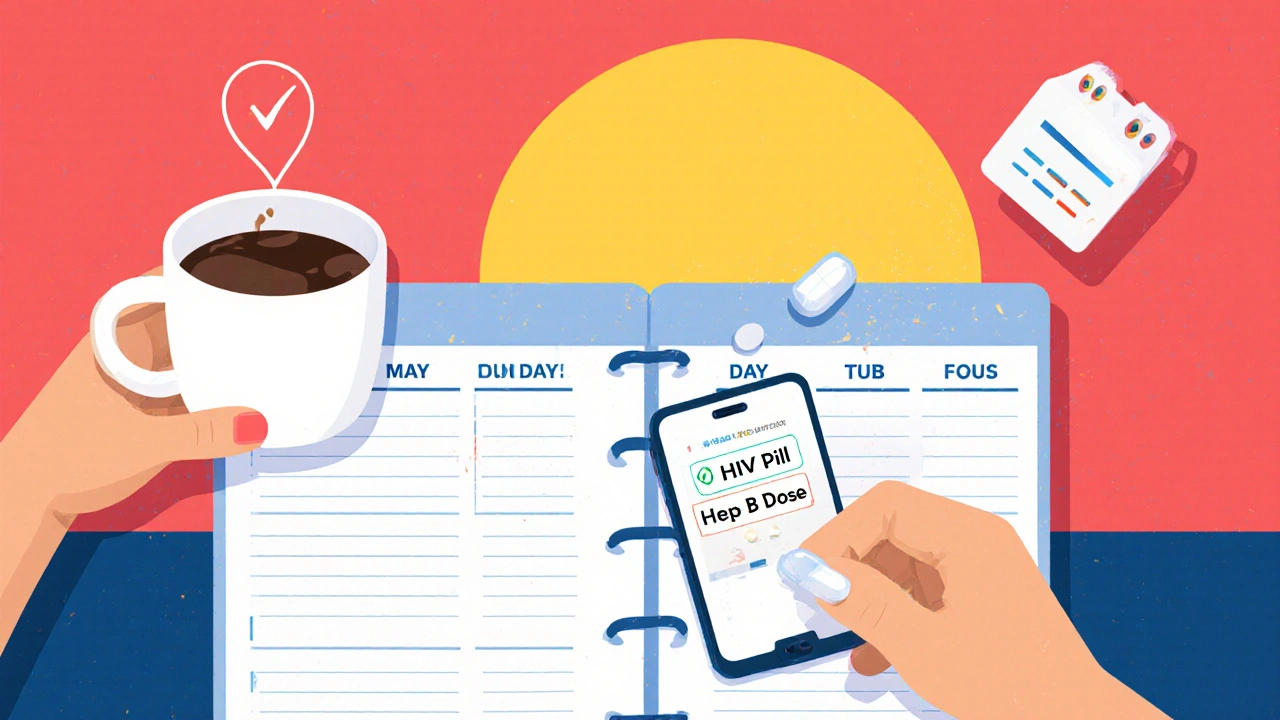
Adherence: The Real Secret to Success
Studies show that if you take your antiviral 95% of the time, resistance is rare. At 80%? Resistance risk jumps. At 70%? It’s almost guaranteed.
Why do people miss doses?
- Complex schedules (three times a day? Too hard to remember)
- Side effects (feeling sick, tired, or weird)
- Travel, work, or busy life
- Stigma - hiding pills from family or partners
Here’s what actually works:
- Use a pill organizer. 63% of people who stick with their meds use one. Buy a simple weekly box. Fill it every Sunday.
- Set phone alarms. 57% of adherent patients use reminders. Set two: one for morning, one for evening. Label them: "HIV pill" or "Hep B dose".
- Switch to once-daily pills. Modern HIV regimens are single-tablet. One pill, one time. Adherence jumps from 42% to 68% when you go from three pills a day to one.
- Link it to a habit. Take your pill right after brushing your teeth. Or with your morning coffee. Routine sticks.
- Ask for help. Pharmacist-led counseling cuts resistance by 28%. Most clinics offer this for free.
One patient on Reddit said: "I missed doses during a business trip. My viral load spiked. Turned out I had M184V. My doctor switched me to dolutegravir. Now I’m undetectable again." That’s the story of resistance - and recovery.
What’s New - And What’s Next
The field is moving fast. In 2023, the FDA approved lenacapavir - a new HIV drug with an extremely high barrier to resistance. In clinical trials, 96% of patients showed no resistance after 72 weeks. That’s huge.
Guidelines changed too. Now, doctors are told to test for resistance before starting treatment for HIV, HBV, and HCV. No more guessing. You get the right drug from day one.
Future tools? Gene editing (like CRISPR) is in early trials. Early results show it can reduce HIV reservoirs by 60% without triggering resistance. But that’s years away.
Right now, the best tool is simple: take your medicine. Every day. No exceptions.
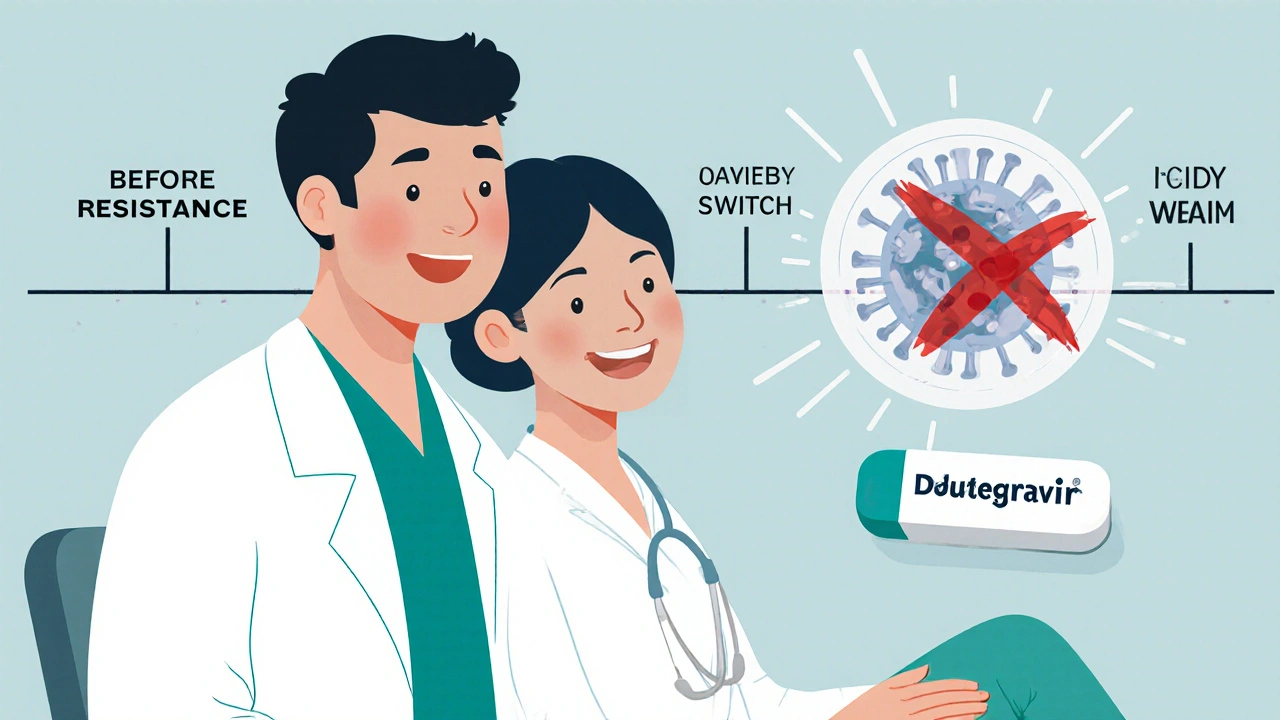
When to Call Your Doctor
You don’t need to panic over every missed dose. But call if:
- You’ve missed more than three doses in a week
- You’re having severe side effects (rash, swelling, trouble breathing)
- You’re planning surgery, pregnancy, or starting a new medication
- You’re traveling and unsure how to manage your pills across time zones
Doctors expect this. They’ve seen it. They want to help - not judge. Don’t wait until your viral load spikes.
Final Thought: Your Dose Is Your Defense
Antivirals aren’t magic bullets. They’re tools. And like any tool, they only work if you use them right. Resistance isn’t a failure of science. It’s a failure of consistency. The science is solid. The drugs are better than ever. The only thing left is you - showing up, every day, even when it’s hard.
Can antiviral resistance be reversed?
Once resistance develops, the mutated virus stays in your body. You can’t "undo" it. But you can stop it from spreading. Switching to a different drug - one the virus hasn’t adapted to - can bring your viral load back down. That’s why resistance testing matters. Your doctor can find a new combo that still works.
Do all antivirals cause side effects?
Most do, but not everyone gets them. And most side effects are mild and short-term. Newer drugs like those for hepatitis C or modern HIV regimens are much gentler than older ones. If you’re worried, ask your doctor about the specific drug you’re taking. They can tell you what’s common and what’s rare.
Is it safe to skip antivirals on vacation?
No. Skipping doses - even for a few days - gives the virus a chance to mutate. If you’re traveling, pack extra pills. Use a pill organizer. Set alarms for your new time zone. If you’re unsure how to manage your schedule, talk to your pharmacist before you leave. It’s not worth the risk.
Can I switch to a different antiviral if I can’t tolerate the side effects?
Yes, absolutely. Many people switch drugs because of side effects. Modern antivirals have multiple options. If one causes nausea, there’s another that doesn’t. If one makes you dizzy, your doctor can pick one that’s gentler. Never stop cold turkey - always talk to your provider first.
How often should I get tested for resistance?
If you’re taking antivirals and your viral load stays undetectable, you don’t need routine resistance tests. But if your viral load rises - even slightly - your doctor will order a resistance test. New guidelines also recommend testing before starting treatment for HIV, HBV, and HCV to pick the best drug from the start.
Are generic antivirals as effective as brand-name ones?
Yes. Generic antivirals must meet the same strict standards as brand-name drugs. They contain the same active ingredient, in the same dose, and work the same way. The only difference is cost. Many people save hundreds per month by switching to generics - without losing effectiveness.
What to Do Next
If you’re on antivirals:
- Check your pill organizer. Is it full?
- Set a phone reminder for tomorrow. Don’t wait.
- Call your pharmacy. Ask if you can switch to a once-daily pill.
- Ask your doctor if you need a resistance test - even if you feel fine.
If you’re not on antivirals but have a chronic viral infection (HIV, HBV, HCV):
- Get tested. Many people don’t know they’re infected.
- Ask about treatment options. Modern regimens are simple, effective, and safe.
- Don’t wait. Early treatment stops damage - and stops resistance before it starts.
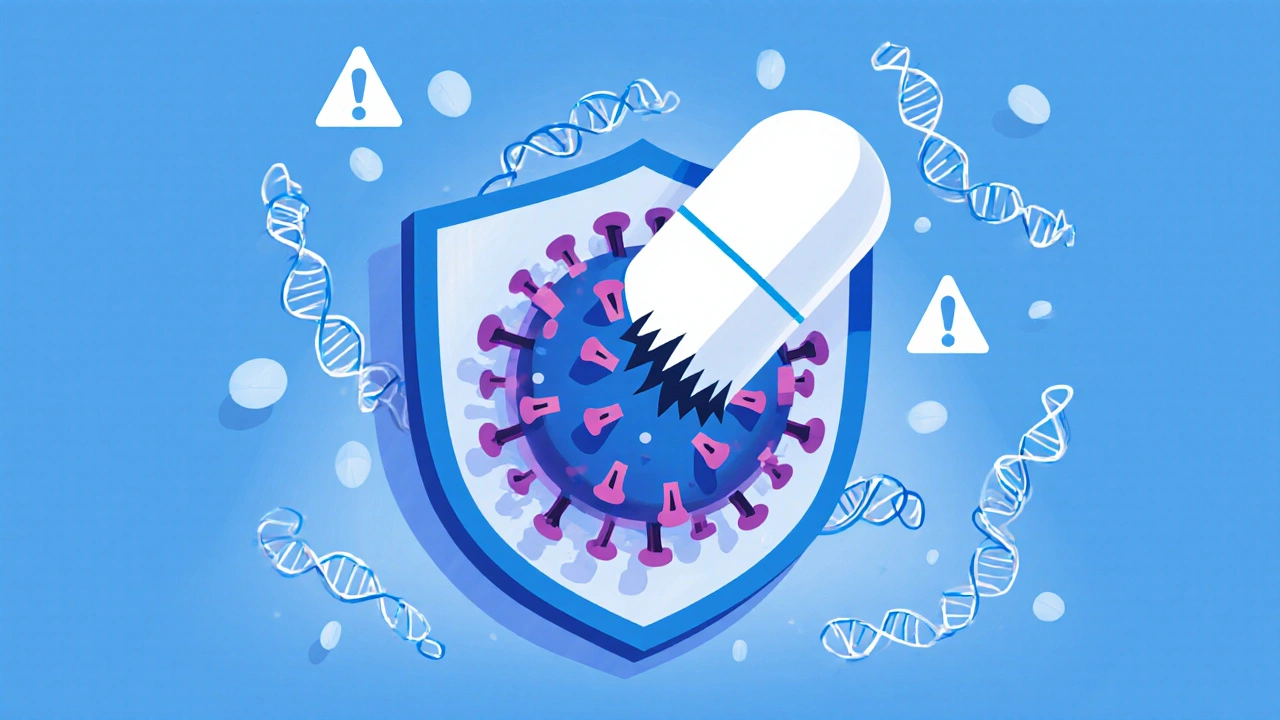

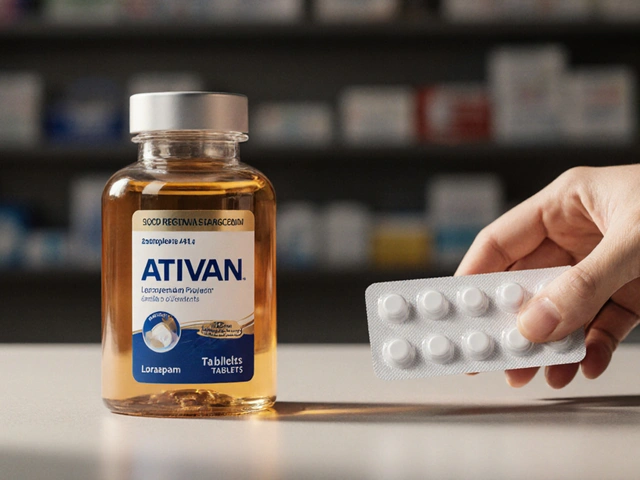
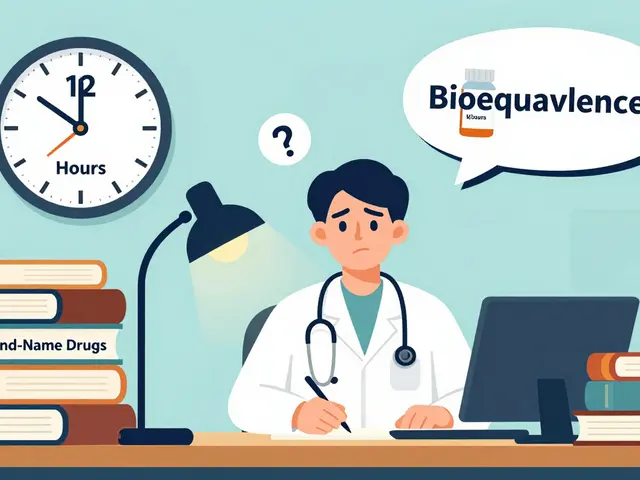
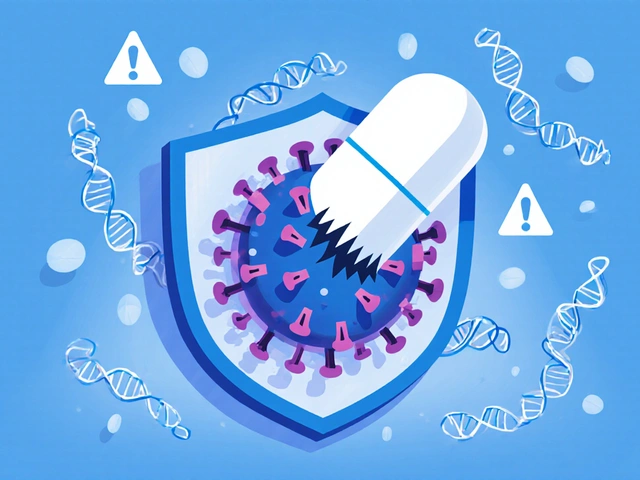


they got you hooked on pills and now they say take it every day like its gospel
same way they told you to take the vaccine
same way they told you to wear masks
same way they told you to buy the drugs
its all just control
oh honey i've been on these for 8 years and let me tell you
the pharma giants are laughing all the way to the bank
they don't care if you live or die as long as you keep buying the next bottle
they make the drugs just barely good enough to keep you alive but never well enough to quit
and don't even get me started on the side effects
my kidneys feel like sandpaper and my doctor just smiles and says 'it's normal'
i lived in india for a year and saw how people manage antivirals with no alarms no pill organizers just sheer willpower and community
someone always remembers for you
you share a meal you take your pill
no tech needed just human connection
we've lost something so simple
just set the alarm
one alarm
that's it
you got this
you don't need a whole system
just one reminder
and do it
you're stronger than the habit
the genetic barrier concept is fascinating
it's like evolution on fast forward
viruses are the ultimate adaptors
and we're the ones trying to outsmart them with chemistry
but the real bottleneck isn't the science
it's the human being trying to take a pill every single day
for years
through life chaos
through grief
through travel
through denial
usa healthcare is a scam
they sell you pills then charge you $500 for a test
then charge you more to switch
then charge you more to monitor the side effects
it's not medicine it's a pyramid scheme
and you're the sucker
the adherence stats are real
95% is the magic number
but what no one says is that 95% doesn't mean perfect
it means you can miss one dose a month and still be fine
that's not impossible
that's human
and if you miss more than that it's not weakness
it's a signal
something in your life needs to change
not your meds
i used to think resistance was about bad patients
then i met someone who missed doses because their partner hid their pills
they were ashamed to say they had hiv
so they stopped taking them
and then got sick
the real enemy isn't the virus
it's the silence
the stigma
the fear of being judged for needing help
I must express my profound concern regarding the alarming normalization of pharmaceutical dependency in contemporary society. The very notion that human beings must ingest synthetic compounds daily to maintain biological equilibrium is, in my estimation, a tragic indictment of our modern lifestyle. Furthermore, the suggestion that adherence to such regimens is a moral imperative borders on the ethically dubious. One must question the motives behind such pervasive medicalization.
in india we have generics
100 rupees a month
no insurance
no pharmacy chains
just a small shop with a man who remembers your name
he knows when you're late
he asks if you're okay
they don't talk about resistance
they just give you the next pill
and you take it
i missed a dose once
and now i think every headache is resistance
every tired day is the virus winning
every sneeze is a mutation
im not even on meds anymore and i still panic
they got in my head
to those struggling with adherence: you are not alone
many of us have stood where you stand
the system is not designed for human life
but small steps matter
one pill
one day
one reminder
you are not failing
you are learning
and your health is worth the effort
the real win is that we have drugs that can make hiv undetectable
that's not a small thing
it's a miracle
and yes the side effects suck
but compare it to what we had 20 years ago
you don't have to die anymore
you just have to take the pill
and that's a choice we never had before
just got my new once-daily pill
it's a game changer
no more 3x a day chaos
took it with my coffee this morning
✅
that's it
no stress
no guilt
just life